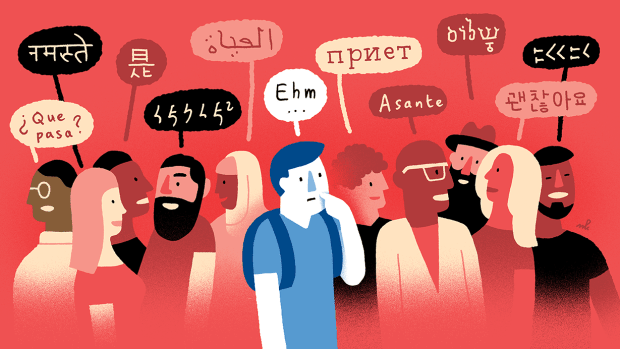
Opinion | Wild proliferation of Dutch-language programs bad for students and treasury
The Balanced Internationalisation Act forces universities to offer more Dutch-language education and limit the number of students in English-language programs. A bad plan, argues Marc Salomon. “Additional Dutch-language programs make education unnecessarily expensive.”
Recently, the joint economics & business faculties in the Netherlands commissioned a study by the independent economic research institute SEO on the effects of the Balanced Internationalisation Act (in Dutch: Wet internationalisering in balans). With this new law, outgoing minister Dijkgraaf hopes to ensure that fewer international students come to the Netherlands and the Dutch language does not die out. In the background, cost savings also play a role.
But extra Dutch-language programs actually make education unnecessarily expensive. In addition, intake restrictions on English-language programs are also detrimental to the labour market position of Dutch students, according to the study, for which fifteen employers were also interviewed, including Friesland Campina, Heineken, Philips, Randstad, Tomtom, Unilever, and the major accountancy firms PWC, KPMG, EY and Deloitte.
Expansion outside the Netherlands
A large number of these employers say they are very worried about the tightness in the labour market, which will increase further with less inflow of foreign students and an ageing population. As a result, a number of employers expect to expand only outside the Netherlands. Employers also see the lack of command of the English language as a bigger problem for their companies than the extinction of the Dutch language, especially since most Dutch students have already had at least twelve years of primary and secondary education in the Dutch language and have an excellent command of Dutch.
Two choices
So Dutch students will soon be able to choose between a Dutch-language study with only Dutch fellow students or an English-language study in which foreign students also participate and in which intake is limited by selection based on quality. Based on the SEO research, it is not that difficult to predict which students will be better marketed to these employers: these will obviously be the students with a good command of the English language and selected on the basis of quality.
Haphazard enforcement
I would advise Minister Dijkgraaf to be very careful about enforcing additional Dutch-language programs indiscriminately. In Amsterdam, for example, there are already five Dutch-language economics & business studies programs, all at VU University. There is still plenty of room in those programs. So should we as UvA also be required by politicians to start two new Dutch-language programs, because there is now fear and uncertainty about sanctions on the English-language programs if we don’t? Surely this is inefficient use of public funds? While surely the law was also meant to reduce costs?
Unemployment
I am not against restrictions on numbers of foreign students for sectors with unemployment. One will have to look carefully where that is, because appearances are often deceptive. ICT and technology are sectors with a shortage of people, but they are not only looking for engineers, mathematicians and physicists. The big firms indicate that accountants are also in short supply. Therefore, for all studies, I see too stringent restrictions on intake in English-language programs as undesirable. An additional effect is that not only foreign students, but also Dutch students will be affected because they will have less access to English-language programs. And these are precisely the programs most valued by employers.
Marc Salomon is full professor of Decision Science at the Faculty of Economics and Business and dean of UvA’s Amsterdam Business School .

